Armenia's surrender in the 44-day war ended with the deployment of peacekeepers in Azerbaijan, their activities set out in Articles 3, 4, and 5 of the November 10 statement. Article 5 states: "A peacekeeping center for control of ceasefire shall be established in order to increase the effectiveness of monitoring the compliance of the conflicting parties with the agreements."
This means that the main function of peacekeepers consisting of only Russian servicemen is to monitor a ceasefire. However, positions in the direction of Goranboy, Tartar, Aghdam, Kalbajar, and Khojaly districts of Azerbaijan are subjected to fire various caliber firearms during the day by members of the illegal Armenian armed group in the territory of Azerbaijan, where Russian peacekeepers are temporarily stationed. The Russian peacekeeping contingent commander and the Russian-Turkish joint monitoring center were informed about the ceasefire violation.

In any case, the intensification of ceasefire violations contradicts the essence of the November 10 statement. Given that there are only Russian peacekeepers in Azerbaijan, we can say that they are responsible for the ceasefire. It also means that Russian peacekeepers cannot fulfill their obligations or are either helping the Armenians violate the ceasefire or giving them the green light.
Some time ago, there were reports that Armenians were undergoing military training in Azerbaijan with peacekeepers' help. This is an indication of the Russian government's failure to fulfill its obligations. A statement issued on November 10 said that in parallel with the deployment of Russian peacekeepers, the Armenian military would leave Azerbaijani lands. In addition, the document does not reflect the issue of the existence of Armenian militants in any form. Then who is firing on other districts of Azerbaijan from the territory where Russian peacekeepers are deployed? The Armenian militants remaining in the region contrary to the statement, the Armenian armed groups sponsored by peacekeepers?
Ceasefire violations during the service of Major General Andrey Volkov, Commander of the Peacekeeping Forces, have become more intense than in the time of his predecessors. From November 2020 to May 2021, the Russian military temporarily stationed in Azerbaijan was led by Lieutenant General Rustam Muradov, who was later replaced by Lieutenant General Gennady Anashkin. Currently, the Russian military is led by Major General Andrey Volkov. He was one of the leaders of Russia's military operations in Syria, Afghanistan, and Chechnya.
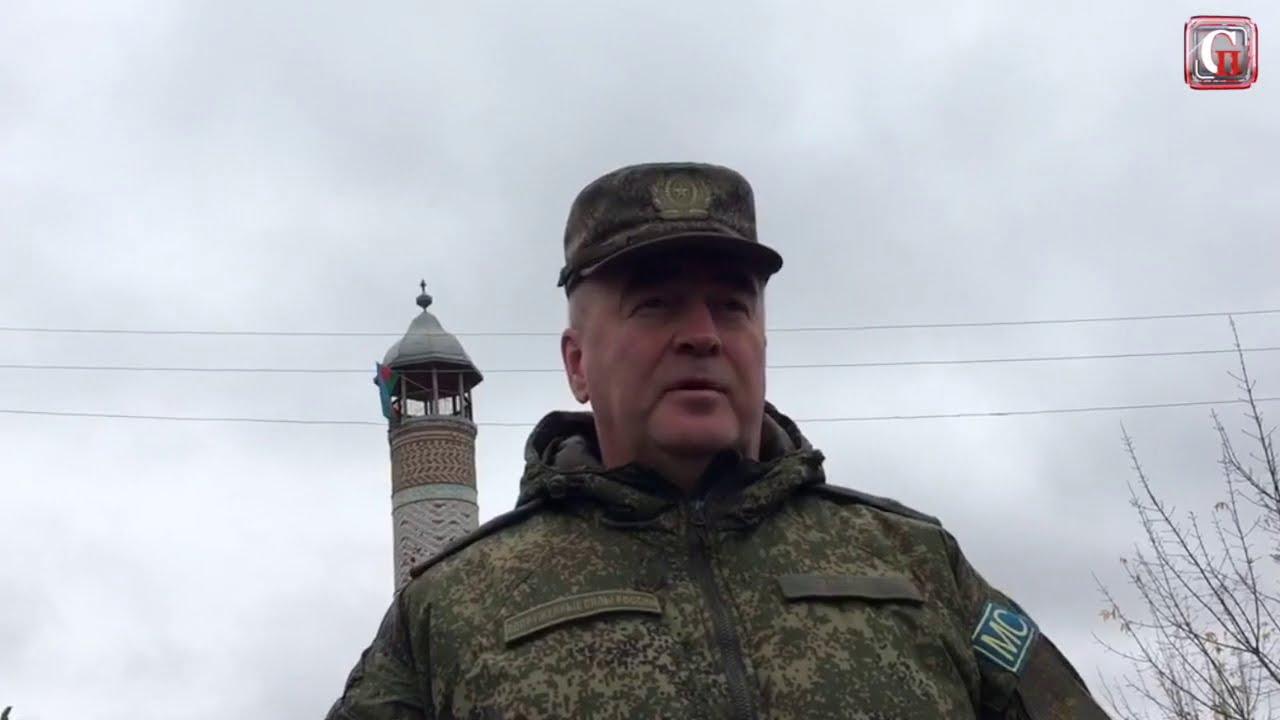
The recent ceasefire violation by Armenians from the territories where the peacekeepers are temporarily stationed gives grounds to say that Volkov is unable to fulfill his duties. Violation of the ceasefire by Armenians in the area controlled by the Russian team gives grounds to make the following assumptions:
– Peacekeepers make use of Russia's military operations in Ukraine. As the country's armed forces are very busy with Ukraine, Volkov arms Armenians against Azerbaijan in the territory where his army is located, turning a blind eye to them in violation of the ceasefire;
– Volkov betrays the interests of his state;
– Commander of peacekeepers uses Armenians as a means of pressure on Azerbaijan;
– He continues the tradition of Russian troops stationed in the region to help Armenians and so on.
Failure to prevent Armenian ceasefire violations will reduce Azerbaijan's trust in peacekeepers because the Russian military has never successfully carried out this mission in the South Caucasus, including Azerbaijan, as well as in the conflict zones – the legacy of the former Soviet Union. After November 10, there was an opportunity for Russian peacekeepers to gain confidence in this direction. However, Major-General Volkov's inability to perform his duties properly casts a historical shadow over the peacekeeping mission.

Azerbaijan faced the similar things over the past 30 years. On January 12, 1989, the Presidium of the Supreme Soviet of the USSR maintained the status of Nagorno-Karabakh as an autonomous region within the Azerbaijan SSR in order to stabilize the situation in connection with the "continuation of tensions in interethnic relations in and around Nagorno-Karabakh" and under the guise of preventing what happened. At the same time, a decree was signed on the introduction of a special form of government in the province. By this decree, a Special Management Committee, reporting directly to Moscow, and the supreme state authorities and administration of the former USSR were established. The committee acted contrary to the provisions of the decree. In other words, it worked to get the province out of Azerbaijan. The process was led by committee chairman Arkady Volsky. As a result of his activity, the departments and enterprises of the region were transferred from the subordination of the Azerbaijan SSR to the subordination of Moscow. In other words, the region was de facto excluded from the Azerbaijan SSR. The flag of the Azerbaijani SSR was removed from the building of the Regional Executive Committee and replaced by the flag of the Armenian SSR. During this period, the return of Azerbaijanis from Khankandi to their homes was not ensured, but the region's villages inhabited by Azerbaijanis were emptied with the help of the Special Management Committee.
After the 44-day war, Azerbaijani citizens who were displaced as a result of Volsky's activities got the opportunity to return to their ancestral lands. But the process is hindered by the actions of peacekeepers such as Volkov. This major general also casts a shadow over Russia's efforts to establish peace between Azerbaijan and Armenia.
Thus, the current service of the peacekeeping force can be characterized as follows: peacekeeper Volkov continues the work of the chairman of the special committee Volsky.
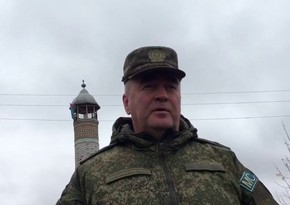
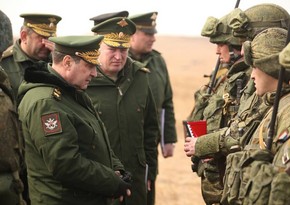
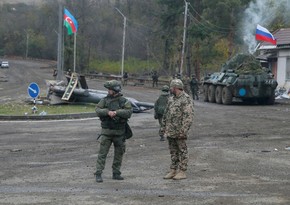
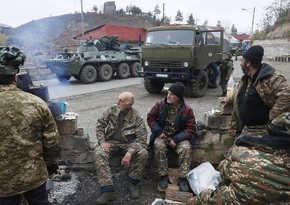 Subscribe to our Linkedin page
Subscribe to our Linkedin page




